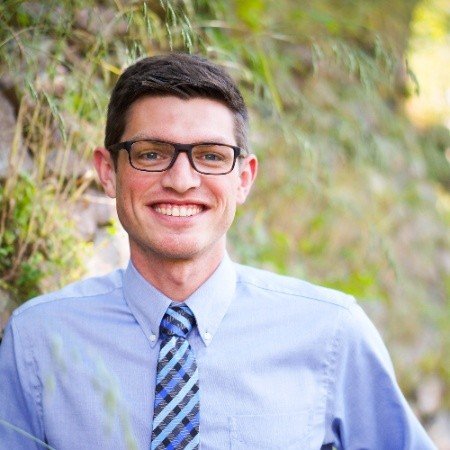February Bulletin
Issue 89
Community Notices
February Research seminar
Next Marble Center seminar is on Monday February 26 (4-5pm, Luria Auditorium) with a research update by Kaelan Reed of the Anderson lab on “Developing lipid nanoparticles for ultrapotent mRNA vaccines.”
Following the talk, we will host a research update by Dr. Alvin Chan of the Traverso lab on “A Deep Learning Approach to Accessible Nanomedicine.”
Hot topic video: Algorithmic fairness in artificial intelligence for medicine and healthcare (Susanna Elledge, PhD)
In the News
Giovanni Traverso, an associate professor of mechanical engineering at MIT and a gastroenterologist at Brigham and Women’s Hospital, is the principal investigator for the project. Image: Courtesy of MIT MechE.
MIT-led team receives funding to pursue new treatments for metabolic disease
(Anne Trafton | MIT News) A team of MIT researchers will lead a $65.67 million effort, awarded by the U.S. Advanced Research Projects Agency for Health (ARPA-H), to develop ingestible devices that may one day be used to treat diabetes, obesity, and other conditions through oral delivery of mRNA. Such devices could potentially be deployed for needle-free delivery of mRNA vaccines as well. The five-year project also aims to develop electroceuticals, a new form of ingestible therapies based on electrical stimulation of the body’s own hormones and neural signaling. If successful, this approach could lead to new treatments for a variety of metabolic disorders.
“We know that the oral route is generally the preferred route of administration for both patients and health care providers,” says Giovanni Traverso, an associate professor of mechanical engineering at MIT and a gastroenterologist at Brigham and Women’s Hospital. “Our primary focus is on disorders of metabolism because they affect a lot of people, but the platforms we’re developing could be applied very broadly.” Read more…
Researchers improve blood tests’ ability to detect and monitor cancer
(Anne Trafton | MIT News) Tumors constantly shed DNA from dying cells, which briefly circulates in the patient’s bloodstream before it is quickly broken down. Many companies have created blood tests that can pick out this tumor DNA, potentially helping doctors diagnose or monitor cancer or choose a treatment.
The amount of tumor DNA circulating at any given time, however, is extremely small, so it has been challenging to develop tests sensitive enough to pick up that tiny signal. A team of researchers from MIT and the Broad Institute of MIT and Harvard has now come up with a way to significantly boost that signal, by temporarily slowing the clearance of tumor DNA circulating in the bloodstream. The researchers developed two different types of injectable molecules that they call “priming agents,” which can transiently interfere with the body’s ability to remove circulating tumor DNA from the bloodstream. In a study of mice, they showed that these agents could boost DNA levels enough that the percentage of detectable early-stage lung metastases leapt from less than 10 percent to above 75 percent.
This approach could enable not only earlier diagnosis of cancer, but also more sensitive detection of tumor mutations that could be used to guide treatment. It could also help improve detection of cancer recurrence. “You can give one of these agents an hour before the blood draw, and it makes things visible that previously wouldn’t have been. The implication is that we should be able to give everybody who’s doing liquid biopsies, for any purpose, more molecules to work with,” says Sangeeta Bhatia, the John and Dorothy Wilson Professor of Health Sciences and Technology and of Electrical Engineering and Computer Science at MIT, and a member of MIT’s Koch Institute for Integrative Cancer Research and the Institute for Medical Engineering and Science. Read more…
MIT Faculty Founder Initiative announces finalists for second competition
The 2023-24 MIT Faculty Founder Initiative finalists are (top row, left to right) Anne Carpenter, Kareen Coulombe, Betar Gallant, and Carolina Haass-Koffler; (middle row, left to right) Stephanie Jones, Laura Lewis, Frederike Petzschner, and Theresa Raimondo; (bottom row, left to right:) Ritu Raman, Deblina Sarkar, Jessica Stark, and Joelle Straehla.
(Mary Beth Gallagher | MIT School of Engineering) The MIT Faculty Founder Initiative has announced 12 finalists for the 2023-24 MIT-Royalty Pharma Prize Competition. The competition, which is supported by Royalty Pharma, aims to support female faculty entrepreneurs in biotechnology and provide them with resources to help take their ideas to commercialization. “We are building a playbook to get inventions out of the lab towards impacting patients by connecting female faculty to the innovation ecosystem and creating a community of peers,” says Sangeeta Bhatia, the John J. and Dorothy Wilson Professor of Health Sciences and Technology and of Electrical Engineering and Computer Science (EECS), and faculty director of the MIT Faculty Founder Initiative.
Throughout the academic year, finalists for the prize competition will receive support through a number of events, workshops, and programs. These activities focus on topics ranging from executive education classes in entrepreneurship to intellectual property and fundraising strategy. Participants also have access to over 50 best-in-class executives, investors, and advisors who have volunteered to provide mentorship and guidance to the finalists as they further develop their startup ideas. Read more…
BIOS podcast interview with Darrell Irvine (Published Jan 22, 2024)
Jobs
mRNA Process Development Engineer, drug substance and vaccine, Sanofi.
As a Process Development Engineer/ Scientist in the Global Drug Substance Development group you will focus on CMC development, optimization and scale-up of mRNA synthesis and purification processes with the ultimate goal of transferring at scale methods to either the internal or external manufacturing team for GMP manufacturing of mRNA drug substance. Read more…
Assistant Professor, Chemical and Biological Engineering, Northwestern University.
The Department of Chemical and Biological Engineering at Northwestern University invites applications for a full-time, tenure-track position at the level of assistant professor. Candidates must have received a Ph.D. in chemical engineering or a related discipline, demonstrate excellence in research, show a strong commitment to teaching at the undergraduate and graduate levels, and provide evidence of past contributions and/or plans to enhance diversity, equity, and inclusion. Read more…
Funding opportunities
| Funding Source | Grant ID | Deadline | AACR Clinical Oncology Research (CORE) Training Fellowship | N/A | February 29, 2024 | The Mark Foundation Endeavor Award | N/A | March 12, 2024 |
|---|












